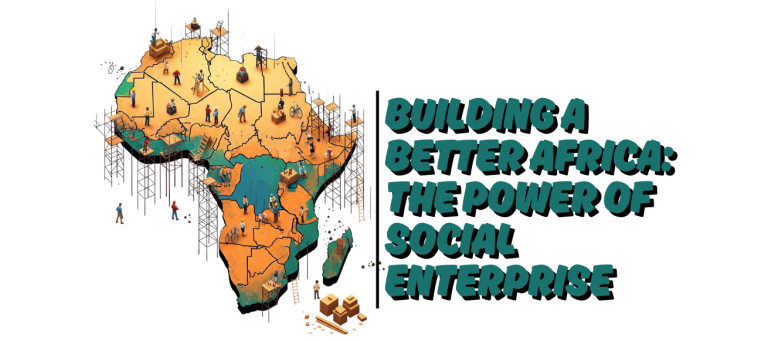Africa is a continent on the rise! It’s the youngest and fastest-growing continent on the planet, with projections showing that by 2050, one in four people in the world will be African. What’s more, by 2035, more young Africans will join the workforce each year than in the rest of the world combined. This youthful population presents both incredible opportunities and unique challenges, but there’s every reason to be optimistic.
Beyond its dynamic demographics, Africa also boasts 65% of the world’s remaining uncultivated arable land, vast renewable energy potential, and an abundance of minerals essential for technological advancements. In addition to that is a young, energetic, and creative workforce, with a continent brimming with untapped potential.
This is a crucial window of opportunity for African leaders and societies to transform this immense potential into rapid, sustainable, and inclusive growth. And guess what tool will play a pivotal role in this transformation? Social entrepreneurship.
What exactly is a Social Enterprise?
You might be wondering, “What is a social enterprise, anyway?” Simply put, a social enterprise is a business with specific social objectives that serve as its primary purpose. Unlike traditional businesses that primarily aim to maximize profits, social enterprises generate income through the sale of goods and services while striving to create a positive social or environmental impact.
Ashoka, the largest network of social entrepreneurs worldwide, defines it as disruptive innovation in resolving social problems in an entrepreneurial way. The key difference lies in prioritization: a social enterprise puts its social or environmental mission before profit maximization. It focuses on innovative processes and new forms of cooperation to find sustainable solutions to societal problems.
The Impact of Social Enterprise on African Society
Social enterprises are not just businesses; they are catalysts for change. Their impact on African society is far-reaching:
- Creation of jobs and economic opportunities:They provide employment and foster economic growth, especially in underserved communities.
- Promotes sustainable development:Their core mission often involves environmentally friendly practices and long-term societal well-being.
- Addresses pressing social issues:From poverty reduction to tackling inequality, social enterprises are on the front lines of solving critical challenges.
- Tackles environmental issues:They are actively working to mitigate problems like climate change through innovative, green solutions.
Ultimately, social enterprise plays a large, catalytic role in driving inclusive and sustainable economic development across Africa.
Our Role at One Million Leaders Africa (OMLA)
At One Million Leaders Africa (OMLA), we are passionate about this vision. We empower African youth by teaching them about social entrepreneurship, they identify social problems within their communities and proffer solutions to them. They are also equipped to launch their own social enterprises. In doing so, they become powerful change agents in their communities. As we build a network of local-to-global change makers and social entrepreneurs, we are actively working towards building a better Africa every single day. We are proud to be part of those championing an inclusive and sustainable Africa.

